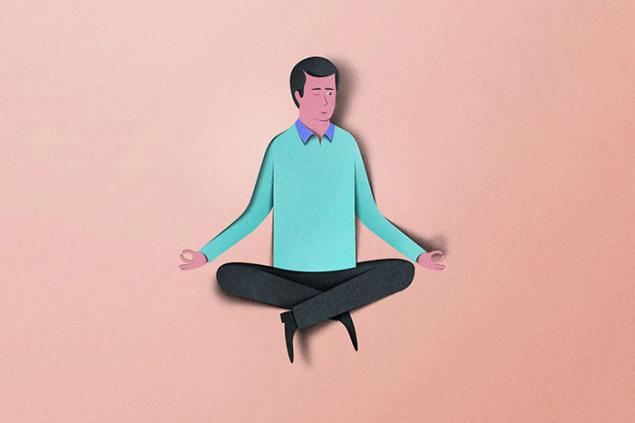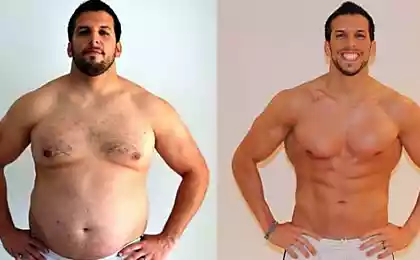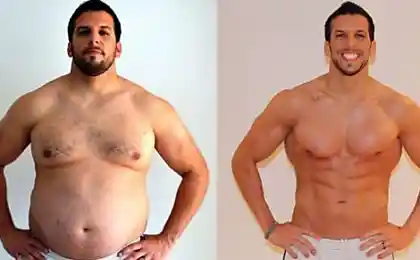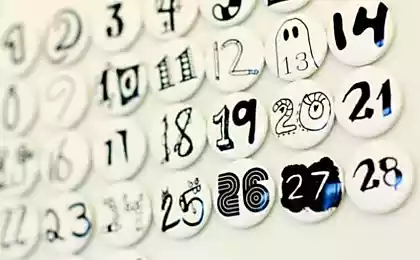256
Getting It All: How to Make the Most of the Week
The fast pace of modern life is accelerating. I want to have time for everything at the same time - to make a career, play sports, learn something new, have fun and communicate with loved ones. And often you have to give up something, justifying this lack of time. Laura Vanderkam’s book on lost time, published by Alpina Publisher, explains why we can do more in a week than we think. Publishing an excerpt from the book.

© Eiko Ojala
Put aside for a while the responsibilities and challenges you have now. Imagine a completely empty calendar for a week with 168 hour graphs. If this is a new concept, I encourage you to spend a few hours thinking about it. When I made the 168-cell table, my first thought was, if you start with a clean slate and put in all the basic components, 168 is an amazing amount. At 168 hours, you definitely have time to sleep 8 hours a day (56 hours a week) and work 50 hours a week if you want to. It takes up to 106 hours and leaves 62 hours a week for other things. Recall that, according to the American Time Use Opinion Survey, the average stay-at-home mom spends less than four hours a week playing games or hobbies with children (approximately six hours if the children are still preschoolers). It's easy to fit at 62. You can even exceed the 17 to 18 hours a non-working mom spends caring for children per week (we’ll discuss later why this is such a low figure and why it’s so different from our impressions – obviously, many non-full-time moms do much more, but the reality of the “average” metric says that some are doing less at the same time).
Although, according to many, we do not have time for exercise, adding up these numbers, you realize that this is not true. If you work 50 hours a week, sleep 8 hours each night and spend 3 hours daily (21 hours a week) caring for and interacting with children, there are another 41 street hours left. At this time, you can easily fit the 2.5 hours of physical activity that our government medical researchers have deemed necessary to promote health. In fact, this figure can be brought up to 5 hours - arrange three hour runs a week and one two hour on a weekend and thus prepare for a half marathon.

© Eiko Ojala
There will still be time for other addictions. People who generously give their time to things they care about are often happier and healthier than others. Yet only a quarter of Americans volunteer. Only a third of these people report more than 100 hours of such work a year. A hundred hours a year is reduced to two hours a week. In other words, even if you work full-time and even longer, get enough sleep, spend more time playing with children than the average stay-at-home mom, and run 40km a week, you can still volunteer more than 90% of your countrymen. And also arrange a weekly outing with your partner. If you add up all those hours (leaving four hours on a date), you’ll see there’s still 30 left. This is enough time to eat and shower, cook and clean the house, if you don’t get too involved, and get where you need to by car (although, again, this should be minimized, as we will discuss in the next chapters). If you spend three hours each day on these things (21 in total), you still have more than an hour a day experimenting with recipes, foaming baths, reading, lying on the couch in front of the TV, or walking your dog along a gurgling stream. If that's what you want. And all of that -- working 50 hours a week, which is much more than the average person, no matter what that person says. If you work 40 hours, you get another 10 hours. If you think about it, you can see how misguided it is that part-time work is the key to work-life balance. If you don’t have time to live your life the way you want in 72 hours of waking time, free from work (168 minus 56 and minus 40 more), why should something change if you have 92 hours?
Of course, this is hardly a big discovery, but frankly, in the time that many people spend on not very interesting TV shows or meaningless phone conferences, you can achieve great change. We can go back to school. You can write a novel every year. I'm serious. It takes about 1,000 hours to write a book, and if you stop watching TV for 20 hours a week, you’ll be freed up immediately. Again, the point of this arithmetic is not to make someone feel guilty. The very possibility of such a choice is an incredible blessing. In some parts of the world, people spend six hours a day fetching water. But if you’re not reading this book in a refugee camp, you’re probably living in an affluent, educated, and free society. And in such a society, people do have time to raise six children and do business, or to work, teach and prepare for triathlon, or to do whatever things bring joy and meaning to your life.
If you love your business, you will certainly work with great enthusiasm. When I reconnected with Sylvia Earle in 2009, at 73, she was going to the Yucatan Peninsula in Mexico to study whale sharks and Australia to explore reefs. In addition, she was finishing a book called The World Is Blue, had just worked with Google to add oceans to Google Earth, and was flying around the planet agitating for marine reserves — she won a $100,000 TED Prize to fund the project. In addition, Earl was involved in the activities of her company Deep Ocean Exploration and Research, which is engaged in consulting in the field of underwater work.

© Eiko Ojala
But here's the amazing thing: if you love what you do, you'll have more energy for the rest of your life. Let’s say you’re trying to make a career while raising young children. In this case, you will have more energy for your family if you do 50 hours a week in what you love than if you spend 30 hours in hateful work. Or at least you'll have better crafts, Earl recalls often asking children to make algae slides. I argue that the right job means a lot, despite the fact that as I write this, Tim Ferriss' Four Hour Workweek has been on the business bestseller list for two years. Ferriss downplays the idea of a dream job. For most people, the best job is the one that takes the least time. The vast majority of people will never find a job that can be a never-ending source of satisfaction, so there will be no such goal. The goal is to free up time and make income automatic.” It definitely touched a sensitive string - perhaps because many people aren't thrilled with their work. In late 2006, Harris Interactive conducted a survey commissioned by CareerBuilder.com that included 6,169 full-time employees. According to this survey, 84% don’t do their dream job (although there’s plenty of evidence that most people don’t feel unhappy). Perhaps someone would be better off following the Four-Hour Workweek recipe of running an automated online business and going on adventures in their spare time. But on the whole, I think it’s just as boring to give “time and time to work” as it is to do the opposite. There is evidence that most people will agree with me. Despite the popularity of TV shows about the rich and unemployed, such as The Real Housewives of New Jersey, a 2002 general demographic survey found that most people would like to work in some form, even if it wasn't necessary.
If you immerse yourself in a meaningful professional occupation, whether it is creating a company whose products will make life easier for people, making scientific discoveries that no one has yet thought of, or composing symphonies, you can get a lot of happiness. Moreover, if you, like Earl, have the right job, then exploring the oceans 4 hours a week will seem like a real torture. I can’t tell you what your dream job is, but I can tell you what it will be like in our emerging job market, according to research on happiness and creativity. I can say that beyond mere satisfaction, the right job will affect the rest of the 168 hours, and there is evidence for that. I can also say that the chances of getting the perfect job from other people are minimal. You have to invest hours in building it, just like entrepreneurs do, whether you work for yourself or others. I can also suggest a few questions to ask yourself about work to see how close or far away it is, because if it is far away, the connection to time management will be even more obvious. published
P.S. And remember, just by changing your consciousness – together we change the world!
Source: theoryandpractice.ru

© Eiko Ojala
Put aside for a while the responsibilities and challenges you have now. Imagine a completely empty calendar for a week with 168 hour graphs. If this is a new concept, I encourage you to spend a few hours thinking about it. When I made the 168-cell table, my first thought was, if you start with a clean slate and put in all the basic components, 168 is an amazing amount. At 168 hours, you definitely have time to sleep 8 hours a day (56 hours a week) and work 50 hours a week if you want to. It takes up to 106 hours and leaves 62 hours a week for other things. Recall that, according to the American Time Use Opinion Survey, the average stay-at-home mom spends less than four hours a week playing games or hobbies with children (approximately six hours if the children are still preschoolers). It's easy to fit at 62. You can even exceed the 17 to 18 hours a non-working mom spends caring for children per week (we’ll discuss later why this is such a low figure and why it’s so different from our impressions – obviously, many non-full-time moms do much more, but the reality of the “average” metric says that some are doing less at the same time).
Although, according to many, we do not have time for exercise, adding up these numbers, you realize that this is not true. If you work 50 hours a week, sleep 8 hours each night and spend 3 hours daily (21 hours a week) caring for and interacting with children, there are another 41 street hours left. At this time, you can easily fit the 2.5 hours of physical activity that our government medical researchers have deemed necessary to promote health. In fact, this figure can be brought up to 5 hours - arrange three hour runs a week and one two hour on a weekend and thus prepare for a half marathon.

© Eiko Ojala
There will still be time for other addictions. People who generously give their time to things they care about are often happier and healthier than others. Yet only a quarter of Americans volunteer. Only a third of these people report more than 100 hours of such work a year. A hundred hours a year is reduced to two hours a week. In other words, even if you work full-time and even longer, get enough sleep, spend more time playing with children than the average stay-at-home mom, and run 40km a week, you can still volunteer more than 90% of your countrymen. And also arrange a weekly outing with your partner. If you add up all those hours (leaving four hours on a date), you’ll see there’s still 30 left. This is enough time to eat and shower, cook and clean the house, if you don’t get too involved, and get where you need to by car (although, again, this should be minimized, as we will discuss in the next chapters). If you spend three hours each day on these things (21 in total), you still have more than an hour a day experimenting with recipes, foaming baths, reading, lying on the couch in front of the TV, or walking your dog along a gurgling stream. If that's what you want. And all of that -- working 50 hours a week, which is much more than the average person, no matter what that person says. If you work 40 hours, you get another 10 hours. If you think about it, you can see how misguided it is that part-time work is the key to work-life balance. If you don’t have time to live your life the way you want in 72 hours of waking time, free from work (168 minus 56 and minus 40 more), why should something change if you have 92 hours?
Of course, this is hardly a big discovery, but frankly, in the time that many people spend on not very interesting TV shows or meaningless phone conferences, you can achieve great change. We can go back to school. You can write a novel every year. I'm serious. It takes about 1,000 hours to write a book, and if you stop watching TV for 20 hours a week, you’ll be freed up immediately. Again, the point of this arithmetic is not to make someone feel guilty. The very possibility of such a choice is an incredible blessing. In some parts of the world, people spend six hours a day fetching water. But if you’re not reading this book in a refugee camp, you’re probably living in an affluent, educated, and free society. And in such a society, people do have time to raise six children and do business, or to work, teach and prepare for triathlon, or to do whatever things bring joy and meaning to your life.
If you love your business, you will certainly work with great enthusiasm. When I reconnected with Sylvia Earle in 2009, at 73, she was going to the Yucatan Peninsula in Mexico to study whale sharks and Australia to explore reefs. In addition, she was finishing a book called The World Is Blue, had just worked with Google to add oceans to Google Earth, and was flying around the planet agitating for marine reserves — she won a $100,000 TED Prize to fund the project. In addition, Earl was involved in the activities of her company Deep Ocean Exploration and Research, which is engaged in consulting in the field of underwater work.

© Eiko Ojala
But here's the amazing thing: if you love what you do, you'll have more energy for the rest of your life. Let’s say you’re trying to make a career while raising young children. In this case, you will have more energy for your family if you do 50 hours a week in what you love than if you spend 30 hours in hateful work. Or at least you'll have better crafts, Earl recalls often asking children to make algae slides. I argue that the right job means a lot, despite the fact that as I write this, Tim Ferriss' Four Hour Workweek has been on the business bestseller list for two years. Ferriss downplays the idea of a dream job. For most people, the best job is the one that takes the least time. The vast majority of people will never find a job that can be a never-ending source of satisfaction, so there will be no such goal. The goal is to free up time and make income automatic.” It definitely touched a sensitive string - perhaps because many people aren't thrilled with their work. In late 2006, Harris Interactive conducted a survey commissioned by CareerBuilder.com that included 6,169 full-time employees. According to this survey, 84% don’t do their dream job (although there’s plenty of evidence that most people don’t feel unhappy). Perhaps someone would be better off following the Four-Hour Workweek recipe of running an automated online business and going on adventures in their spare time. But on the whole, I think it’s just as boring to give “time and time to work” as it is to do the opposite. There is evidence that most people will agree with me. Despite the popularity of TV shows about the rich and unemployed, such as The Real Housewives of New Jersey, a 2002 general demographic survey found that most people would like to work in some form, even if it wasn't necessary.
If you immerse yourself in a meaningful professional occupation, whether it is creating a company whose products will make life easier for people, making scientific discoveries that no one has yet thought of, or composing symphonies, you can get a lot of happiness. Moreover, if you, like Earl, have the right job, then exploring the oceans 4 hours a week will seem like a real torture. I can’t tell you what your dream job is, but I can tell you what it will be like in our emerging job market, according to research on happiness and creativity. I can say that beyond mere satisfaction, the right job will affect the rest of the 168 hours, and there is evidence for that. I can also say that the chances of getting the perfect job from other people are minimal. You have to invest hours in building it, just like entrepreneurs do, whether you work for yourself or others. I can also suggest a few questions to ask yourself about work to see how close or far away it is, because if it is far away, the connection to time management will be even more obvious. published
P.S. And remember, just by changing your consciousness – together we change the world!
Source: theoryandpractice.ru





















